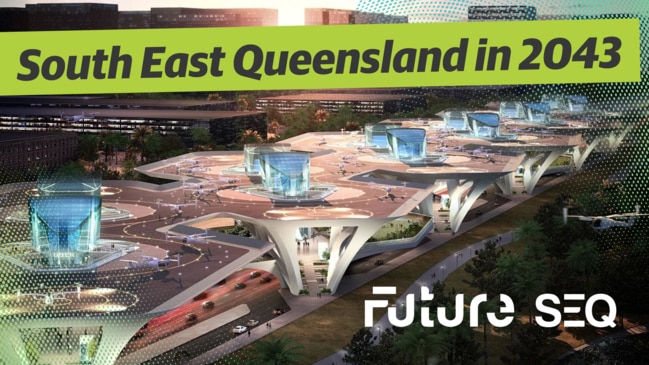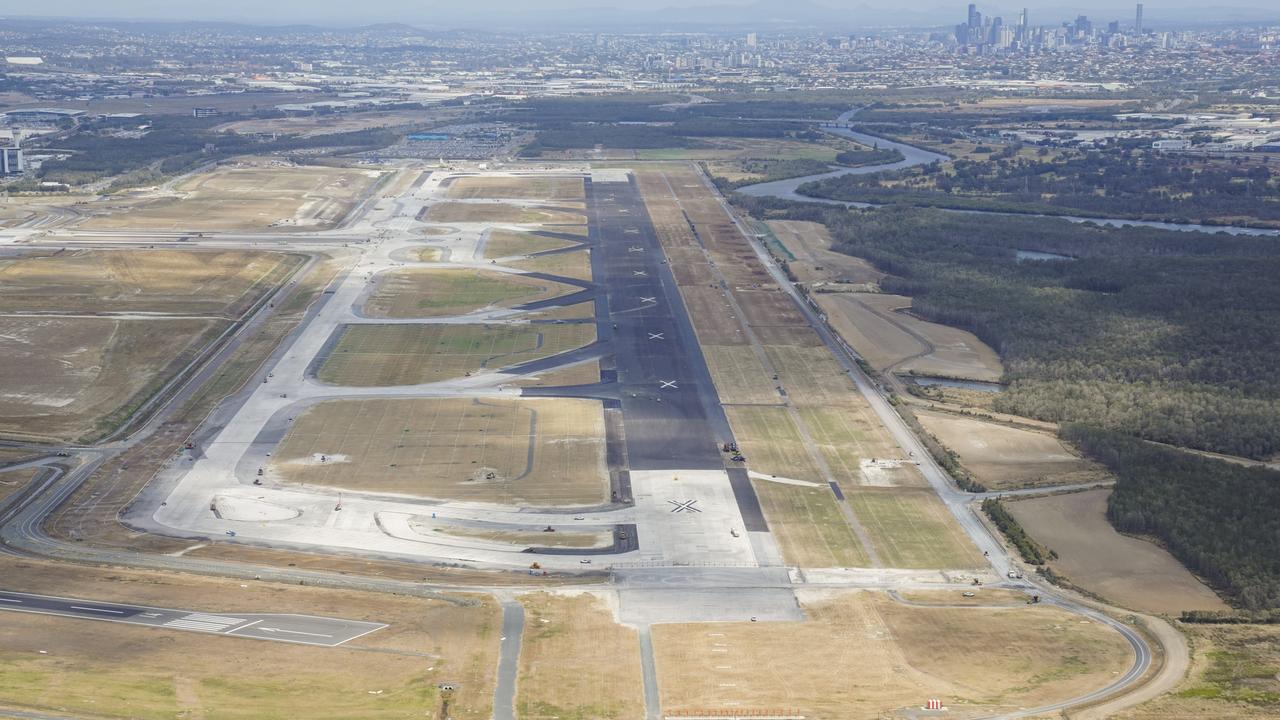Future SEQ: Nation to see rise of single-person household
MUM, dad and the kids. It’s traditionally how Aussies have lived. But there is a new iteration of the Australian household on the horizon, and we need to start planning for it now, writes Bernard Salt.

Future QLD
Don't miss out on the headlines from Future QLD. Followed categories will be added to My News.
IF THERE is one thing that unites all Australians – and all southeast Queenslanders – it is our shared experience with households. Arguably the three-bedroom brick-veneer was invented to accommodate a family of mum, dad and the kids.
Future SEQ: Look to Vancouver for future vision
Future SEQ: Younger residents more worried about crowding
Future SEQ: Southeast’s most liveable suburbs
More recently, there have been new iterations of the household model, including the DINK – double income, no kids. Indeed, it is the rise of DINKs that has led to the increase in apartment living and the transformation of Brisbane’s inner city. But the demographic gods are not done with reconfiguring the Australian household.
Not content with usurping the family’s suburbia and supplanting it with the hipster couple’s beloved inner city, there is a new iteration of the Australian household on the horizon. Within the next 20 years, the country – and southeast Queensland specifically – will witness the rise of the single-person household.
And it makes sense. If you accept that there was a baby boom in the 1950s, then from the 2020s onwards, there will be a baby bust, leading to many mostly older women living alone. One of the greatest social issues of the near and midterm future will be dealing with loneliness among a generation whose children are less likely than ever to live locally.
Over the 20 years to 2036, the number of households will increase by 37 per cent, and in fast-growing southeast Queensland, the rise is expected to be 45 per cent, according to the Australian Bureau of Statistics.

However, the fastest-growing household type over this period is expected to be single persons – up 47 per cent nationally and 50 per cent in southeast Queensland.
Interestingly, the UK Government has recently appointed a Minister for Loneliness in recognition of this pressing social issue.
What can we do as a society to mitigate the effects of loneliness on a community unused to this problem? Young hip 20-something singles have access to sport, work and social activities. But older 70-something singles whose partners have died, whose children live elsewhere, and who no longer have “the church”, are left isolated and alone.
Home security becomes an issue. Maybe we’ll see a rise in companion animals and companion relationships. But how do communities deal with social isolation on a vast scale? Should we be building the social networks, the volunteering schemes, the civic-minded culture that help bind a community and deliver resilience?
These are issues we’ve never dealt with previously. The suburbs were always places of sport, kids and sausage sizzles, where social connection was easy.
The surge in single-person households suggests a different future for suburbia than expected. In a community wracked with social isolation and aloneness, depression and other mental-health issues surface.
A community that is engaged, and an older community that feels connected to the mainstream, is a community that requires less social and health assistance.
Plus, it’s the right thing to do. No previous society in human history will have as many “old people” (proportionately) as we (and other developed nations) will in the 2030s and 2040s. This issue will gather momentum in the coming decade and will probably peak in about 2043, the target year of the Future SEQ series by The Courier-Mail. Thereafter, the loneliness issue will subside as the baby boomer generation passes on.
In the meantime, we should be asking ourselves, and our business and government leaders, what can be done, not so much to future-proof southeast Queensland – that’s a question for politicians, engineers and planners – but to lonely-proof it.
Maybe we could start with a focus on the numbers, the timing and the low-cost responses that we can put in place right now, such as building social cohesion through an even greater emphasis on volunteering.
Bernard Salt is managing director of The Demographics Group.



